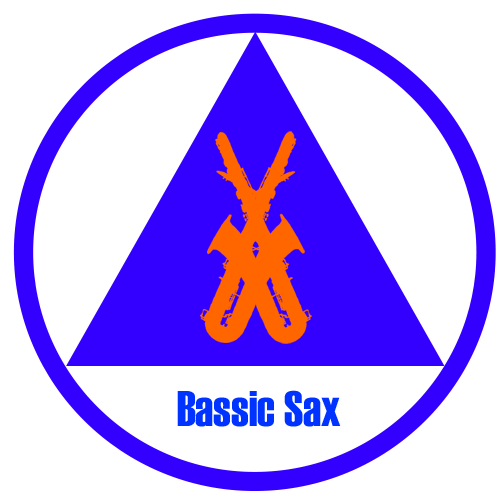I came across a really thought-provoking thread on SOTW today. Anyone who studied music more than a couple of decades ago can most likely relate to this statement by the OP:
As a music education major in the late ’60s and early ’70s the emphasis was on learning musicianship. In private lessons, methods classes, and large and small group rehearsals, we were taught not just the mechanics of playing the instrument, but how to use the instrument as a tool of expression by learning musicianship each step of the way.
This included learning how to listen, how to be a good ensemble player, how to achieve expression in the music, what tonal quality and style of articulation fits a particular style or genre of music, and the list goes on and on.
My impression from reading post after post on SOTW is that many teachers just have the students “crank out the scales and exercises” running back and forth around their instrument at breakneck speeds and this is what learning to play the saxophone is all about.
Perhaps I’m just an old curmudgeon, but flying through technique and scale studies one after another in each lesson all at f or ff leaves little time for development in so many other areas of musical ability. I think we do our students a great disservice by not encouraging, even insisting they learn all musical styles and genres on the instrument so that all of their future musical opportunities and experiences are not limited by their lack of training in other types of music. I strongly believe that musicianship is musicianship regardless of the style of music being played, and if that becomes the goal it will open up countless avenues of musical expression and participation.
John
After carefully reading through the thread I realized that John, and a number of the other posters who had years of playing and teaching experience under their belts, had managed to capture my feelings quite well.
We live in this world where mediocrity is rewarded, and attention to detail is a thing of the past. Discussion boards such as SOTW are full of questions such as: What sax is better X or Y? What setup will let me sound like artist A? What mouthpiece should I use?
Coming up through the ranks and learning like the players of the past did, by gaining lived experience, seems to be lost on today’s young players. Like someone in the thread said: They just want to be told. Bottom line… Youth today seek instant gratification. Given the pop culture world they’ve grown up in, it’s really no surprise. As I’ve said before, it’s like we’re hard-wiring ADD and ADHD right into them.
I fear musicianship might be one of those dinosaurs hovering on the verge on extinction: just waiting for the ice age of pop culture to bring about its demise.



Hi Helen and Mal-2,
I hope no one minds if I revive the “zombie” with some thoughts of my own.
Almost four years later and I am a little more hopeful for the future of music. Every now and then I come across a younger musician who is not looking to pillage the past for shortcuts to success, but rather takes the broader view and a closer listen to the recorded past in order to discover how the f*** they did that, what they did to get there, and why they wanted to do it at all.
Some of the teaching methods that you observe, Mal-2, are borne out of laziness, yet some of it is a considered reticence to define what musicality means. There is a legitimate sense that an educator ought to lead a student to the discovery of the subject, and not just spoon-feed “correct” interpretations.
Some of this emphasis on raw technique has occurred because of perceived need to quantify progress, and the accumulation of specific techniques is one result of this. It is what constitutes a syllabus in many school systems.
To add my tuppence to why it is the way it is, it seems to me that there has been a deep rupture in the continuity of music education caused by the lack of opportunity to participate in large ensembles with musicians of mixed experience. :rant: What I am trying to express is that a working big band during much of the twentieth century before 1970 included members with anywhere from years to decades of experience. Like traditional guilds, these levels could be broadly described as apprentice, journeyman, master, and professor (doctor). The opportunity for interaction among these four (especially among the apprentice-journeyman-master triad) greatly enriched the music in a way that an individual teacher never could. :rant:
As a random thought, sometimes the rehearsals are more instructive than the public performances themselves, but that is another discussion.
Peace,
paul
I know that when I was in high school, sight reading was a component of every concert band competition we went to. Thus we drilled on rhythms as a unit, and notes as sections. It got boring at times, so those of us who were up to the task were encouraged to do things like clapping out a rhythm while simultaneously counting in 16ths or triplets or whatever was appropriate. We were also taught basic concepts like “good accents make a band sound louder and bigger than it is”, and “remember to breathe (insert pauses) even if your instrument doesn’t require it”.
I know when I gave lessons (almost never on my best instruments, but the concepts don’t change) I would make sure the student knew what notes to play and when. That was his or her own job. My job was then to get them to the next level, by saying things like “OK you got all the notes. Now play the MUSIC,” or “Good, now SAY something. Own it. Make it yours.” Since I was often stranded on instruments where I was only marginally competent technically, some of my students had better raw chops on their horns than I did. But that’s exactly what they were, RAW. This is understandable if the only instruction they received was in a large class, where no instructor could hear them in particular. That is why they paid me — to tell them the things their band director didn’t have time to discover or discuss.
There is a time and place for both kinds of instruction, and the fact is that it’s easier to teach pure technique to a group, and musicianship to individuals or small groups. Education being what it is today, there is precious little time for the latter. Hopefully the ones who have both the talent and desire find an outside instructor who gets this. Later they will get the one-on-one time with professors, but it’s good to ground them in the concepts first and prevent the accumulation of bad habits.
For those playing music that originally had lyrics, I would highly encourage them to learn at least the first verse and the chorus, and “sing along” in their heads as they played. It leads to better phrasing, more lyrical playing, and (much to the student’s pleasure) a much easier time memorizing tunes. Dexter Gordon knew this and used it extensively, and I’m sure many others have used this technique. Some go so far as to MAKE UP words to help them memorize a tune. I have, and when it works, it really works. There is no one-size-fits-all answer, so it is best to stock the skill set with as many tools as possible. You don’t have to be great at all of them to make them useful.